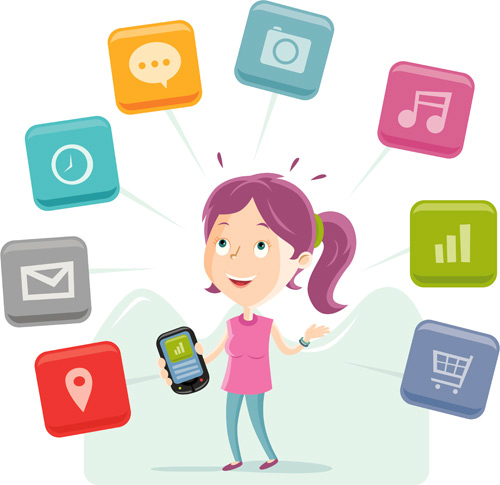
They are the rising tablet generation: the young children entering early-learning programs at public libraries or in preschools. Some of these kids, like my four-year-old daughter, have had their hands on tablets for their whole lives.
Launched in April 2010, the iPad ushered in a new era of computing. The tablet was introduced by Apple CEO Steve Jobs as a “lean back” device built for casual use in a relaxed environment. In other words, a toy, not a tool. These “toys” have come to dominate the market, taking a huge bite out of traditional computer sales and creating a new app-driven market.
Four years in, I’m starting to think that maybe tablets aren’t so good. They’re wonderful devices, don’t get me wrong—providing unbelievable computing power in a simple-to-use package. But they aren’t good for developing technology problem-solvers.
Back when I had to back up my first computer onto 92 floppy disks—and walk uphill to school both ways, as I recall—computer users had to be creative. My friends and I played around with OS/2, a series of operating systems created by Microsoft and IBM, because we were too cool for Windows 3.1. We opened the boxes and learned how to work with the hardware that powered our software. Kids today have it too easy.
Our challenge as librarians supporting early learning is finding ways to develop creative and curious children—kids who explore and hack in physical and virtual worlds. The safe, easy, and lovable tablet doesn’t help with this problem.
We must find ways to employ technology as a tool, thoughtfully engaging our children. How about a chore chart? Encourage parents to create one on a tablet so that the device shines as a tool meeting a need beyond entertainment. Our four-year-old has her own Google account with a calendar for her activities. She can look at her color and see when things are happening.
Helping parents find ways to model technology use with children is important. It’s even more critical that we empower kids to use technology and technical thinking themselves to solve problems. Traditional building toys like blocks and Lincoln Logs get kids to think about the logical process of construction. They learn about the importance of a strong foundation and the need to support roof structures. More importantly, they learn about trial and error, perseverance in problem-solving, and the need to think creatively in order to find a solution.
Our challenge is to replicate this in the digital tablet world. We need to find (or build) apps that support constructivist learning, creative thinking, and problem-solving for young learners. To find tools that young kids can use to track data and manage their lives. To create a stuffed animal inventory database—or a weekly calendar with pictures for scheduled activities.
I envision early childhood education as a makerspace and programming boot camp that prepares our kids to use the tools of our digital world, not just the toys. Oh, and if they could help shore up our economy (and our retirements) as high-tech enabled workers, that wouldn’t be so bad either.


